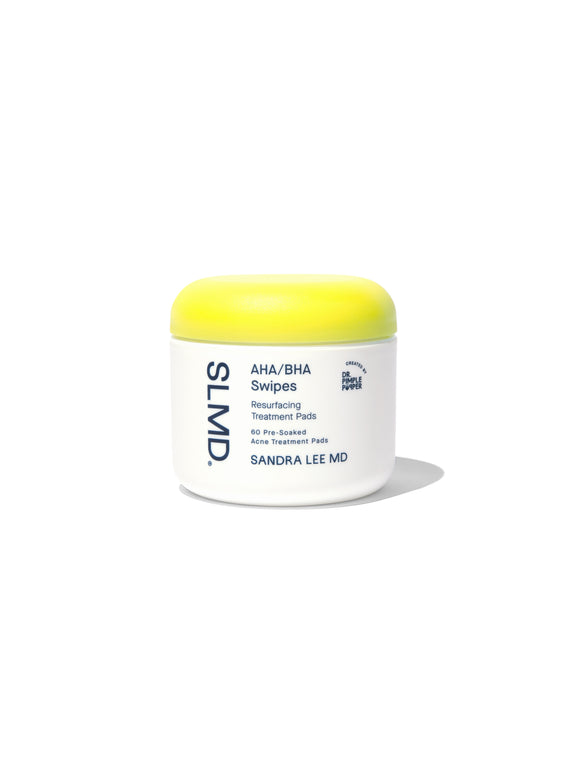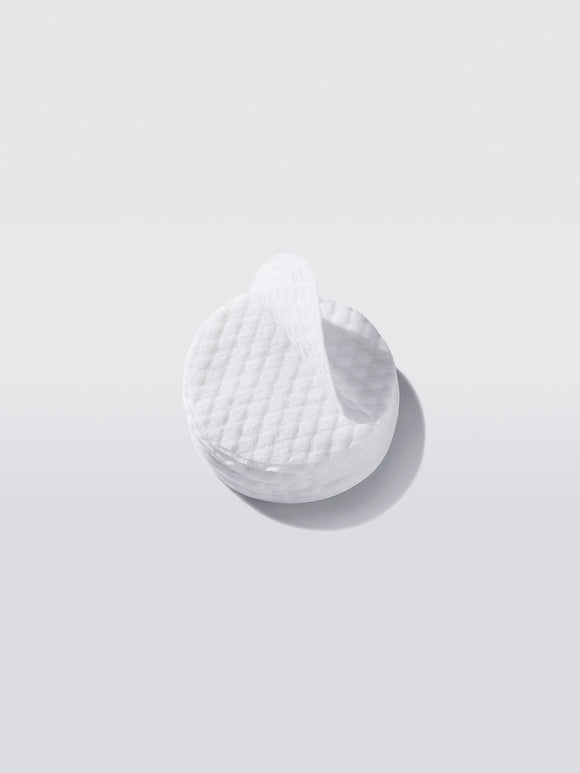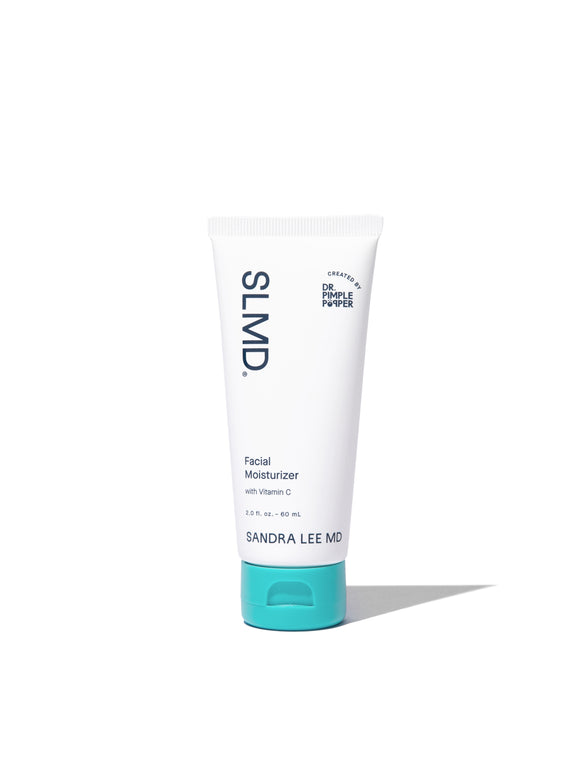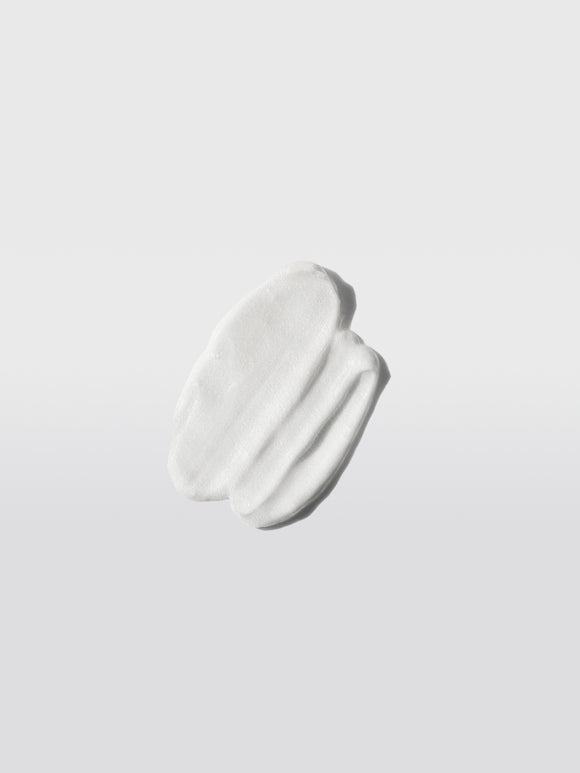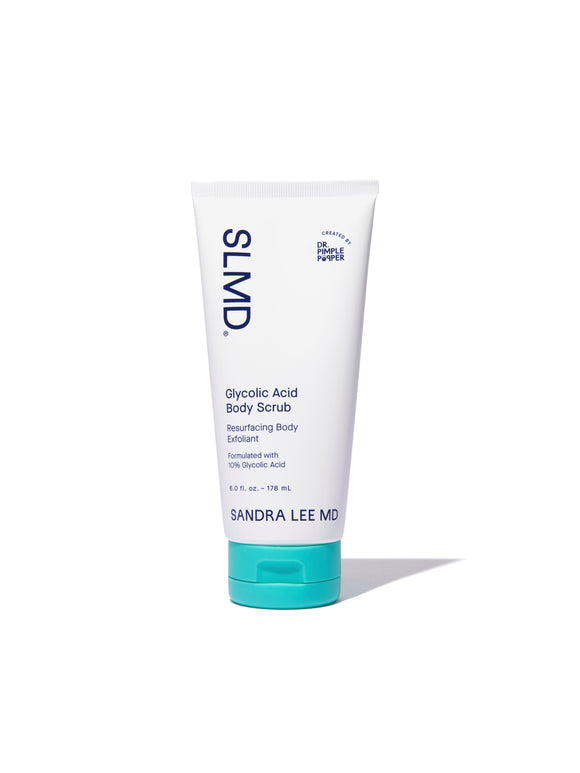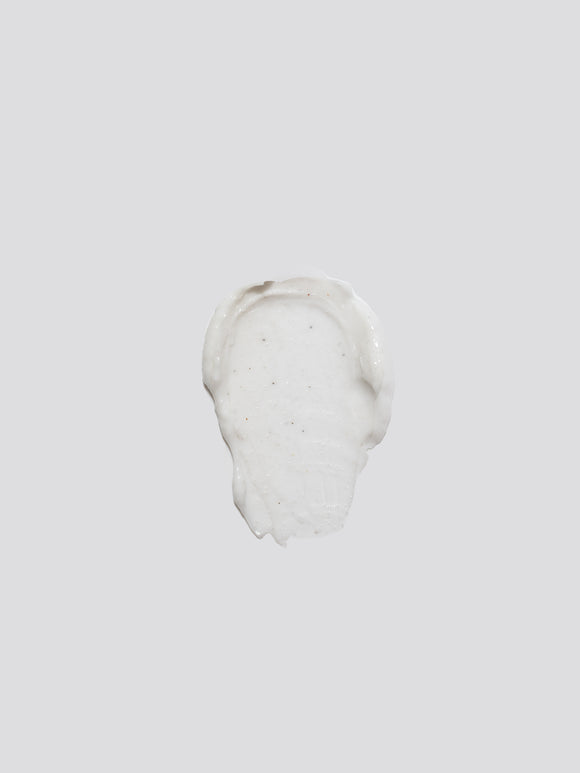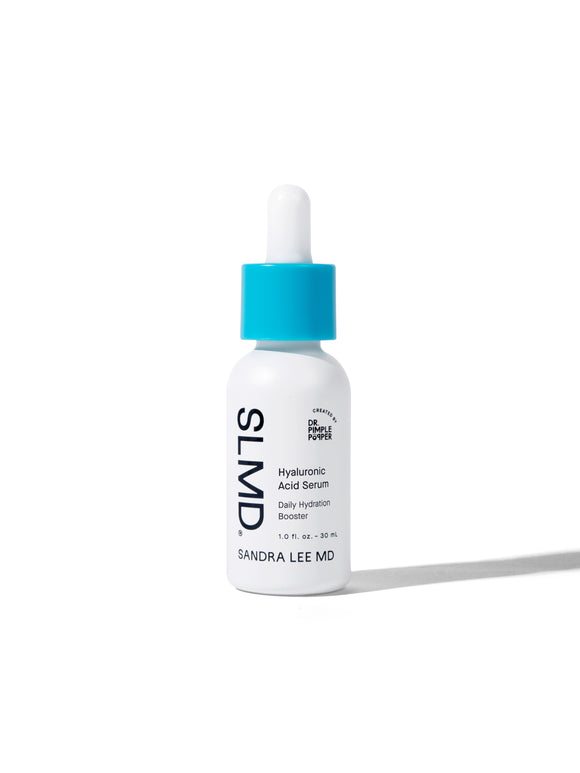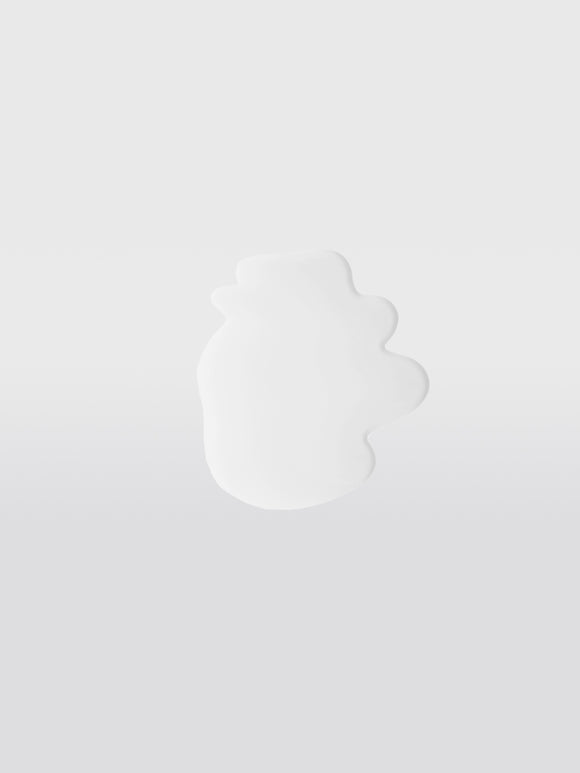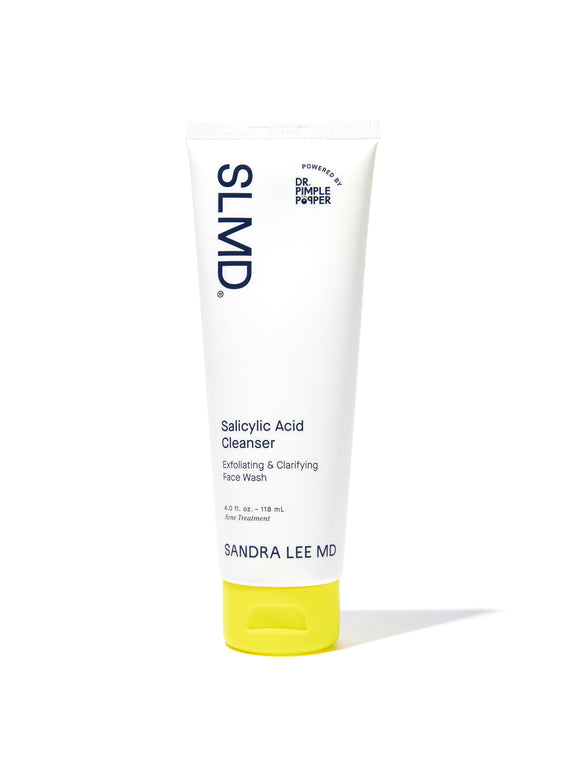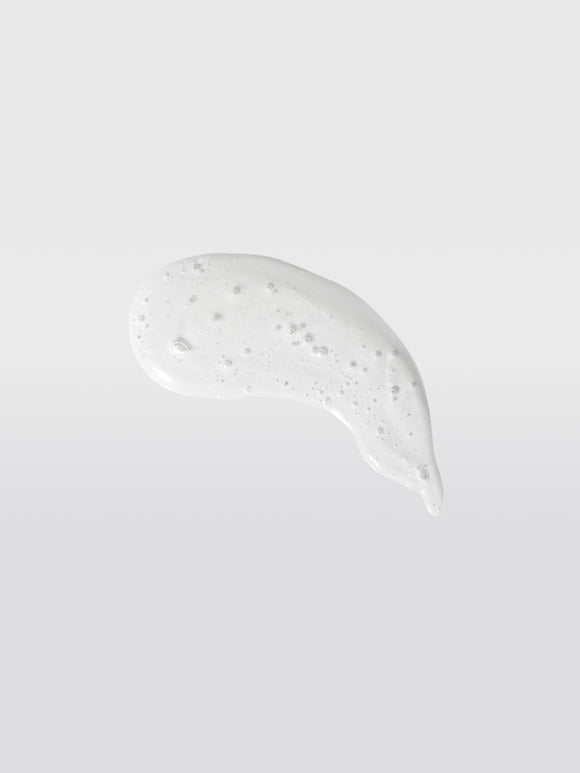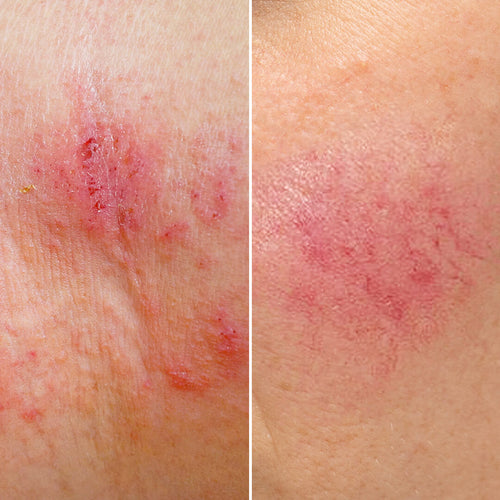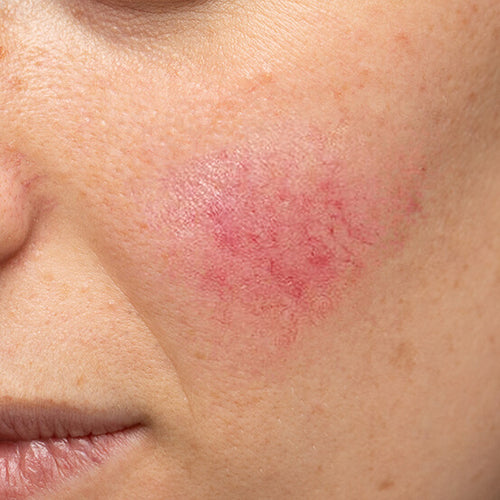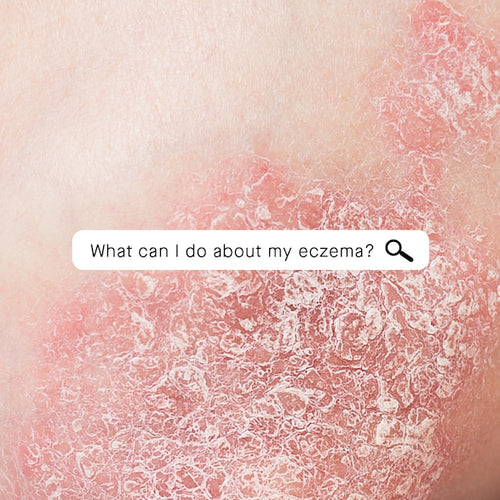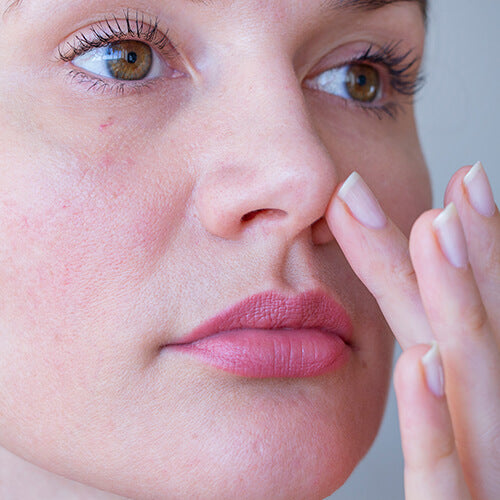
Are Chemical Exfoliants Safe for Skin Conditions Like Eczema and Rosacea?
If you have a chronic skin condition like rosacea or eczema, choosing the right skincare isn’t always straightforward. This is especially true for chemical exfoliants like glycolic acid. Wondering if alpha and beta hydroxy acids are safe for eczema and rosacea prone skin? We’re breaking it down with Dr. Pimple Popper.
Published:
4 minute read
If you’ve got sensitive skin, or a chronic skin condition like rosacea or eczema, choosing the right skincare isn’t always so straightforward. Anyone who’s experienced a reaction or a flare-up can relate: finding formulas that contain effective active ingredients that don’t irritate your skin can be challenging. This is especially true for chemical exfoliants — ingredients like glycolic, lactic, and salicylic acids — that are commonly found in cleansers, scrubs, toners, peels and moisturizers.
Wondering if these alpha and beta hydroxy acids are safe for eczema and rosacea prone skin? We’re breaking it down below.
What is eczema?
We’ve talked about eczema before, but here’s a quick recap of the chronic skin condition that affects over 30 million Americans (that’s 1 in 10 over a lifetime).
Can you use chemical exfoliants if you have eczema?
According to board certified dermatologist Dr. Sandra Lee (aka Dr. Pimple Popper), eczema typically responds well to a combination of lifestyle modifications and skincare. Here are her top recommendations:
- Avoid your triggers. Bathe/cleanse with warm (not hot!) water, wear soft, breathable fabrics, and try keeping a food journal to pinpoint any dietary culprits.
- Exfoliate. Contrary to popular belief, most eczema prone skin types benefit from gentle exfoliation to help remove the dry, scaly buildup. For the face, stick to chemical exfoliants to avoid irritation.
- Moisturize. Because eczema-prone skin has a compromised skin barrier, moisturizing is extremely important.
- Wear sunscreen. Some people with eczema-prone skin find relief with a bit of sun exposure, while others say sunlight can be a trigger. Regardless, daily sun protection is a must.
What is rosacea?
It’s estimated that as many as 16 million Americans have rosacea, a skin condition that can be notoriously difficult to treat.
Are chemical exfoliants safe for rosacea?
Dr. Lee says that while there’s no cure for rosacea, most people are able to manage it by making changes to their lifestyle, and using the proper skincare products. Some patients also respond well to certain types of lasers and LED therapy — but seeking out a very experienced cosmetic dermatologist is a must.
- Avoid your triggers. Stay protected from the sun, year-round. Take note of products you’ve used, and/or foods you’ve eaten, leading up to a flare-up.
- Exfoliate with caution. Because rosacea-prone skin can be very sensitive, Dr. Lee suggests patch testing gentle chemical exfoliants so you can still reap the benefits without triggering an outbreak. Avoid physical scrubs that can damage skin. If well tolerated, try exfoliating about once a week or so — as always, listen to your skin.
- Moisturize. Keeping skin balanced is important for keeping it healthy. Find a product that’s formulated for all skin types.
- Sunscreen. Limiting UV exposure is critical for keeping rosacea in check, as the sun is one of the most common triggers.
What are the best exfoliants for eczema or rosacea prone skin?
Dr. Lee recommends lower-concentration, chemical exfoliants for any type of sensitive skin or chronic skin conditions like these. Start slowly — cleansers are a good option, because the exfoliant doesn’t stay on the skin very long. Try SLMD Salicylic Acid Cleanser, a beta hydroxy acid face wash with added allantoin to moisturize and soften skin, as well as oat extract, an antioxidant skin protectant.
Glycolic acid in low concentrations is another option, especially for eczema-prone skin. For the face, try SLMD AHA/BHA Swipes once every 7-10 days, then step up as tolerated. SLMD Body Smoothing System, which includes Glycolic Acid Body Scrub and Body Lotion, is an ideal option for the body.
Always follow cleansing and exfoliating with a moisturizing step, with sunscreen for daytime. Try SLMD Facial Moisturizer and Dual Defender SPF 30. Add a hydrating serum like SLMD Hyaluronic Acid Serum for an extra boost, anywhere on the face or body.
To help manage body eczema, try soothing colloidal oatmeal (shown in studies to be highly effective in protecting the skin barrier).
Dr. Lee’s last word
I get a lot of questions about skincare from my patients with chronic inflammatory skin conditions. They want to try certain ingredients like vitamin C or exfoliants, but want to avoid triggering an outbreak of rosacea or dermatitis. My best advice is to look for products that are formulated for all skin types, with low concentrations of active ingredients — and ease into using them. Like I always say, listen to your skin!
—Dr. Sandra Lee



